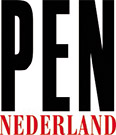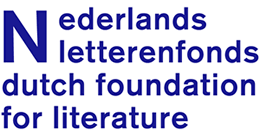21 februari: Internationale Moedertaaldag
Ieder jaar wordt op 21 februari Internationale Moedertaaldag gevierd (International Mother Language Day). Deze dag werd in 2001 door UNESCO in het leven geroepen om het belang van talige en culturele diversiteit en meertaligheid te benadrukken.
Dit jaar is er onder meer speciale aandacht voor de verdrukking en onderdrukking van de Koerdische taal en cultuur in Turkije (zie onder voor meer informatie). Ter ondersteuning van dit initiatief en ter viering van talige pluriformiteit, vindt u hieronder twee gedichten van de Koerdische poëet Mehmet Çetin (1955). Hij schrijft in het Kirmanç, wat in het Turkse deel van Koerdistan een van de meest gesproken Koerdische talen is. De Nederlandse vertalingen zijn van de hand van Sytske Sötemann, die de gedichten uit het Turks vertaalde.
bêbextiyne
piye mê tu hocadê zê jü koi merdayna xo bêpine
zê roca payızi zê varıse amnani ama şê omrê tu
qê kem nêbiye iştiriyane to’ra xesreta to hocara
vana kê daa bêveso welêbıro bêqediro nu welat
e kê manu nia bewayr bêberbe serba bêbextiynê
piye mê tu hocadê zê jü koi merdayna xo bêpine
kırmanciyna xo bêpine ha gola dersima bêwayıre
ware xu bêpine veri koide hega xo marabayna xo
xovıramekê tu anca koe muzırra hızıre xu bêpine
veng u vac çino kê bêberbe serba bêbextiyna mê
piye mê tu hocadê zê jü koi merdayna xo bêpine
tu zê tikma rezi tu zê koi berzi bêpine hocadê
mılcıkane bırr bêpine cemu xu mezela qalike xu
e kê rısna seri sıma ‘ce xu ‘ce cirane xu bêpine
vıle xu çöytmeke zeri menci serba bêbextiyna mê
piye mê tu hocadê zê jü koi merdayna xo bêpine
noodlot
wacht daar onwrikbaar als de bergen, vader
in je leven van herfstdagen en zomerregen
onstelpbare tranen van heimwee wenend
het land dat jou schandvlekt verschroeit tot as
hoedt men je niet, huil dan om mijn noodlot
wacht daar onwrikbaar als de bergen, vader
wacht op je stam aan het verlaten meer van dersim
wacht op je berg, je vlakte, je weide, je knechtschap
en vergeet je heilige niet in de bergen van munzir
niets zul je horen huilend om mijn noodlot
wacht daar onwrikbaar als de bergen, vader
wacht daar als een zaailing hoog in de bergen
wacht daar als de vogels in het bos, als het meer
van munzir, als het graf van je grootvader
buig niet, zucht niet om mijn tragisch noodlot
wacht daar onwrikbaar als de bergen, vader
de wind
verjaag mij uit het gefluit van de gekrenkte wind
jaag mij bij deze liefde bij dit volk vandaan, jaag mij
naar de amazone zo je wilt voeg me bij het bos
lijf me in bij het maanvolk op de verste kust
neem me op in het gekwaak van de waterogige kikker
in het geruis van het regenwoud en voeg me toe
aan een bericht in de krant over moord, dood me
jaag mij het leven in van de sprookjesverteller, verbeeld mij
laat mij groeien door de naar regen geurende aarde
jaag me op naar de seringenkleurige ochtenddauw
maak mij tot slachtoffer van mijn arme broeder
de indiaan wiens pijl uit zijn boog tevoorschijn schiet
vergeet het water in mijn schaduw en laat de vogel slapen
wens lange tochten voor de reiziger van de wind
wens de herfst dat hij niet gekrenkt verbleekt in zomergeel
verjaag mij uit het gefluit van de gekrenkte wind, jaag me weg
verjaag mij uit het gefluit van de gekrenkte wind
jaag me bij deze liefde bij dit volk vandaan, jaag me weg
volg mijn stem hoe gebroken ook
over elk van mijn verbanningen bestaat een lied
jaag mij, bij al het gestotter, naar mijn woord
verjaag me naar mijn gefluit van de gekrenkte wind, jaag me op
(Van het gedicht ‘De wind’ is geen tekst in het Kirmanç beschikbaar.)
***
Turkey: The repression of Kurdish Language and Culture must stop
On International Mother Language Day, PEN International is supporting the right of Kurdish people to use and promote their own language and culture
21 February 2018 – On Mother Language Day, PEN International wishes to highlight the sustained repression of Kurdish culture and language in Turkey, the impact of which is becoming ever more harrowing.
Kurdish and pro-Kurdish journalists and media outlets have been among the principal victims of the crackdown on free speech that followed the attempted coup of July 2016. Most pro-Kurdish and Kurdish-language media outlets have now been closed down. Since 1 January 2017, pursuant to a decision by the Turkish Press and Advertisement Council, ‘all font and text except advertisement on any print press must be in Turkish’.
At least 50 journalists of Kurdish or pro-Kurdish outlets languish in prison. In a prominent example reporter and editor Nedim Türfent, who was covering clashes between the Turkish army and the PKK, was arrested and charged with ‘membership of a terrorist organisation’ and ‘making terrorist propaganda’ on account of his reporting and social media posts. During pre-trial detention, he was held in solitary confinement for over a year, and although 20 of 21 witnesses who appeared in court claimed that they gave evidence after having been tortured by the police, he was found guilty and sentenced to 8 years and 9 months’ imprisonment in December 2017.
In another example, in March 2017 journalist, painter and poet Zehra Doğan was convicted of ‘propagandising for a terrorist organisation’ for her work as a painter and journalist. She is currently serving a sentence of 2 years, 9 months and 22 days. The criminal charges against her relate to a painting; in which she recreated a photograph by the Turkish military taken during the five-month curfew imposed on the town Nusaybin, a newspaper article in which she reported on the fighting between the Turkish army and the PKK in Nusaybin, and her social media activity.
Since the founding of the Turkish republic in 1923, which enshrined a mono-cultural national identity, the country’s large Kurdish minority has often been banned from expressing its culture or from speaking the Kurdish language. Towards the end of the previous decade, President Erdogan loosened some of these restrictions, but the repression of the Kurdish population has come back in full force since the breakdown of the peace process between the Turkish authorities and the Kurdistan Workers’ Party (PKK) in July 2015.
Renewed violence after the end of the ceasefire has seen thousands killed and wounded. Scores of historical sites and buildings have moreover been destroyed. The Sur district in Diyarbakir, a UNESCO World Heritage Site, has been the site of some of the fiercest fighting and entire neighbourhoods have been demolished. Some government-appointed authorities, who have partially replaced democratically elected mayors and officials in Kurdish-majority municipalities, have taken down cultural monuments throughout the region. For instance, in the city of Bazid the statue of the prominent classic Kurdish writer Ehmedê Xanî was removed.
Meanwhile, the Turkish authorities have taken to persecuting those who call for peace. For instance, criminal proceedings have been instituted against Academics for Peace, a diverse group who signed a declaration calling for peace in Turkey’s south-east in January 2016, and who are facing terrorism-related charges as a consequence. Recently, after the central council of the Turkish Medical Association issued a short statement to express its opposition to the on-going military operations by the Turkish army in a Kurdish-majority area in northern Syria, senior council members were arrested and accused of propagandising for terrorist organisations.
Take Action
Write to the Turkish authorities:
- Demanding the immediate and unconditional release Nedim Türfent and Zehra Doğan, and all others who are imprisoned solely for having exercised their right to freedom of expression;
- Calling on Turkey to lift the state of emergency;
- Calling on Turkish authorities to respect the right of Kurdish people to use and promote their own language and culture and to study in their mother tongue;
- Calling for an end to the repression of Kurdish culture and heritage and instead to promote Kurdish language and linguistic rights;
- Calling on Turkish authorities to permit the re-opening of Kurdish language media outlets; and
- Calling for an end to the persecution of those who call for peace in the conflict between the Turkish authorities and the Kurdish population both within and outside of Turkey.
Publicity & social media
PEN members are encouraged to:
- Publish articles and opinion pieces in your national or local press highlighting the right of Kurdish people to use and promote their own language and culture
- Organise public events, press conferences or demonstrations;
- Suggested tweet: #Turkey – The repression of Kurdish Language and Culture must stop #IMLD2016 @pen_int (add link to action paper);
- Suggested tweet: On #IMLD2018 call on #Turkey to end the repression of #Kurdish language & culture @pen_int (add link to action paper).
N.B. PEN Nederland zal ook aan dit actieprogramma deelnemen.
Wereldwijd worden naar schatting zo’n 6.000 talen gesproken. Maar liefst 43% daarvan wordt bedreigd en slechts enkele honderden worden gebruikt in het onderwijs. Online is de diversiteit nog kleiner, daar wordt in nog geen honderd talen gecommuniceerd. Kijkt u voor meer informatie over Internationale Moedertaaldag op de website van Unesco.





